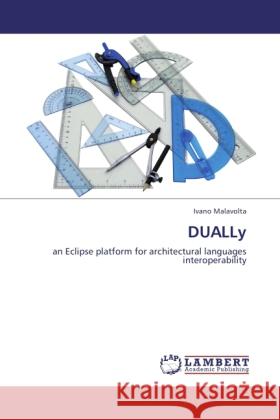DUALLy » książka
DUALLy
ISBN-13: 9783846534106 / Angielski / Miękka / 132 str.
Many architectural languages have been proposed in the last 15 years, each one with the chief aim of becoming the ideal language for specifying software architectures. What is evident nowadays, instead, is that architectural languages are defined by stakeholder concerns. Capturing all such concerns within a single, narrowly focused notation is difficult. At the same time it is also impractical to define and use a universal notation, such as UML. As a drawback, a proliferation of languages exists, each one with its own application domain, analysis type, or modeling environment. This thesis presents DUALLy, an automated framework that allows architectural languages and tools interoperability. Given any number of architectural languages and tools, they can interoperate with each other, thanks to automated model transformation techniques. DUALLy has been implemented as an Eclipse plugin. The last part of this work presents a use case showing the application of the DUALLy approach to (i) an LTS-based modeling and analysis language (Darwin) and (ii) a box and lines language with Process Analysis capabilities (Acme); we then transform complex DARWIN specifications into ACME models.











